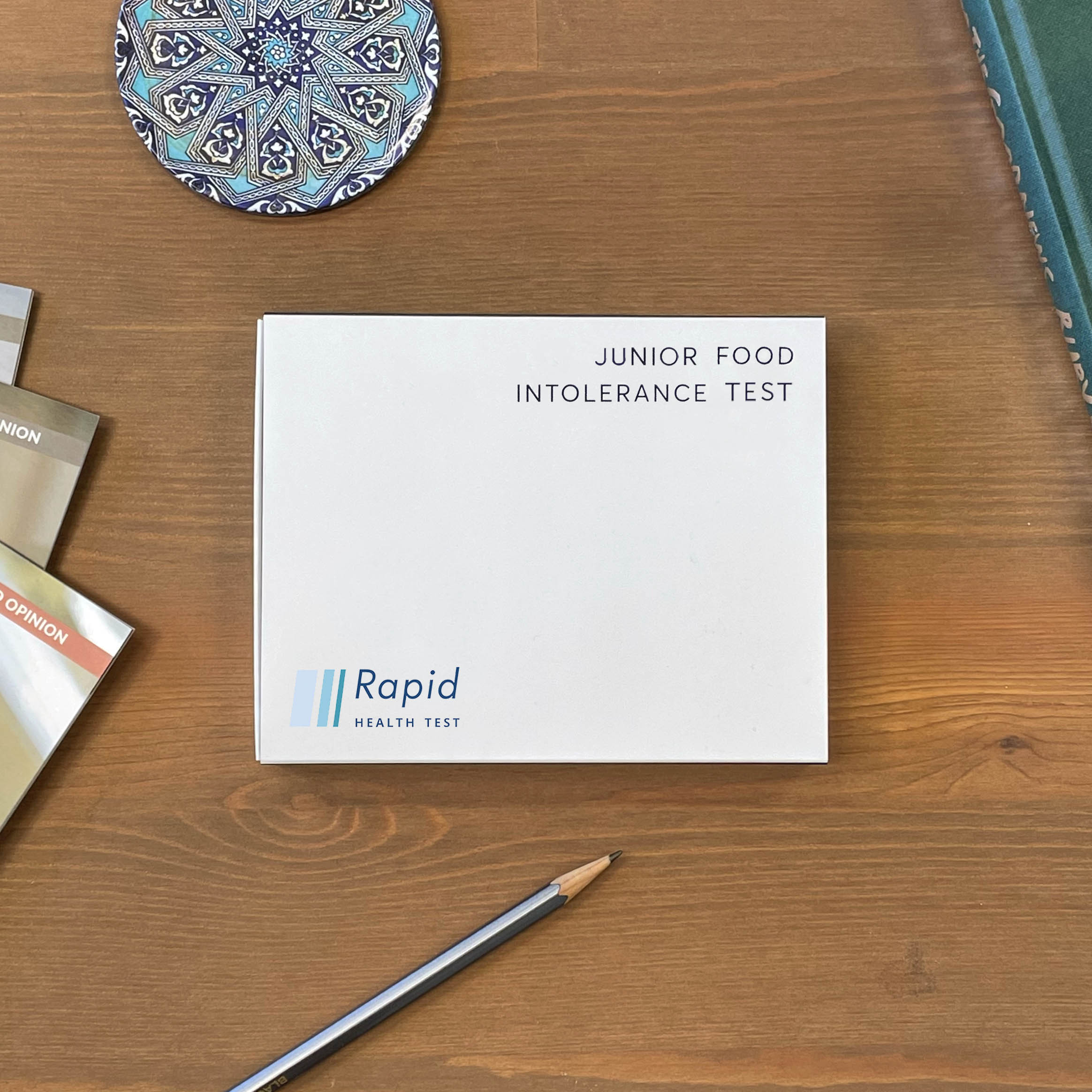Children’s Food Intolerance Tests
If you think your child is suffering with a food intolerance, then it’s really important to get their symptoms checked out.
Why Get Your Child Tested?
Food intolerances are on the rise in the UK with nearly 50% of the population being affected by a food sensitivity – including our young people. Our food intolerance tests put parent’s and children’s minds at ease.
Finding Answers
When the sufferer doesnt understand their symptoms, it can be particularly distressing, not only for the child but the parents too. Painful symptoms can make mealtimes stressful and upsetting.
Food intolerance symptoms can range from diarrhoea to gas and bloating to susceptibility to colds and more.
Some of the most common culprits include dairy and gluten, but all sorts of ingredients can trigger a reaction. While it’s often really hard to exactly guess what may be causing a reaction, there is an easy solution that can tell you everything you need to know, put your mind at ease and get your youngster back on track: food intolerance tests.
What Causes Intolerances & Allergies?
Be it genetic predisposition, environmental factors, immune function, the aftermath of illness, lifestyle choices and more, all sorts of elements can have an impact on how your body reacts to certain foods. Similarly, the symptoms can differ in extremis from person to person, with some people experiencing short bouts of intense discomfort and pain, and others experiencing mild yet prolonged irritation.
Why is testing important?
Many health issues as a result of food allergies and intolerances occur without the person being fully aware. This is a problem. Some people experience food sensitivities or allergies in their childhood and for others, these symptoms will occur suddenly and much later on in life. If the symptoms have been ignored, or just not identified, this can lead to much bigger problems down the line. Ultimately, there will be a point when the body can no longer deal with the strain anymore and becomes much more susceptible to fatigue, viruses and general ill-health.
Why are our tests different?
Combating the gap in the study of nutrition and the availability of food allergy and intolerance testing, we have developed a series of tests that allow individuals to really understand their own needs. As much as each individual thinks, behaves and reacts differently, so too do our organs and internal systems. This is why, as every individual is unique, so too must be the assessment and treatment. With our food allergy and intolerance tests, we can look at all the symptoms so as to begin identifying the cause. To find out more information and take the first steps to a happier, healthier and more comfortable life, buy your test or get in contact with us today.
Is Your Child Suffering?
Intolerance
Food intolerance is a digestive system response rather than an immune system response. It occurs when something in food irritates a person’s digestive system or when a person is unable to properly digest, or break down, the food. Intolerance to lactose, which is found in milk and other dairy products, is the most common food intolerance.
If your child is showing any of these symptoms, they may be suffering from a food intolerance:
- Nausea
- Stomach Pain
- Gas & Cramps
- Bloating
- Vomiting
- Heartburn
- Diarrhoea
- Headaches
- Irritability or Nervousness
Buy Your Childs Food Intolerance Test
- It’s simple, quick and straightforward, just take a finger-prick blood sample and post back to us to test.
- Results given within 3-5 working days.
What intolerances do we test in children?
Key Ingredients
Almond, Beef, Coffee, Cows Milk, Egg White, Egg Yolk, Oat, Peanut, Pork, Tea Tomato and Yeast.
Fruit
Apple, Apricot, Avocado, Blackcurrant, Cherry, Coconut, Cranberry, Cucumber, Grape, Grapefruit, Kiwi, Lime, Olive, Orange, Peach, Pear, Pineapple, Raspberry, Strawberry and Tomato.
Herbs & Spices
Basil, Chilli Pepper, Cinnamon, Clovwe, Coriander, Cumin, Dill, Ginger, Mint, Mustard Seed, Nutmeg, Paprika, Parsley, Peppercorn, Sage, Thyme and Vanilla.
Nuts & Plants
Almond, Brazil Nut, Buckwheat, Carob, Cashew Nut, Cocoa Bean, Cola Nut, Hazelnut, Peanut, Sesame Seed, Sunflower Seed and Walnut.
Fish
Cod, Crab, Haddock, Herring, Lobster, Mackerel, Mussel, Oyter, Plaice, Prawn/Shrimp, Salmon, Scallop, Sole, Trout and Tuna.
Grains
Corn (maize), Gliadin (gluten), Hops, Millet, Oat, Rice and Wheat.
Meat
Beef, Chicken, Lamb, Pork, Turkey and Duck.
Vegetables
Asparagus, Aubergine (eggplant), Broccoli, Brussel Sprouts, Cabbage, Carrot, Cauliflower, Celery, Garlic, Haricot Bean, Kidney Bean, Lentils, Lettuce, Mushroom, Onion, Pea, Peppers (capsicum), Potato, Rhubarb, Soybean, Spinach and String Bean.
From The Expert
“Food intolerances can begin at any time, though they often start during childhood. Manifesting in all different ways for different people, they are caused by the body’s inability to break down and digest certain foods (or whole food groups) and can lead to uncomfortable and sometimes painful symptoms. This is particularly confusing and upsetting when the sufferer doesn’t understand their symptoms, which in the case of food intolerances can range from diarrhoea to gas and bloating to susceptibility to colds and more.“
Dr Joachim Stolte, MD, Ph. D, MRCGP.
How It Works

1.
Place your order, and we’ll post it to you directly.

2.
Take a finger prick test and collect 2-3 drops of blood, and post back to our laboratory.

3.
Receive and review your results, in a simple, easy to understand way.




